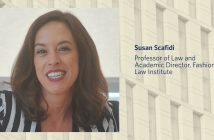Professor Jed Shugerman wrote a blog post about Donald Trump Jr soliciting a “thing of value”—opposition research—from a Russian government official.
I’ve been thinking a lot about my claim in a post on Monday night that Donald Trump, Jr., committed a crime by soliciting a “thing of value” (opposition research) from a foreign national, under 51 U.S.C. 30121.
…
First, how do we draw a line between “opposition research” and information or investigation? It’s impossible. So essentially, this interpretation would criminalize a campaign official talking to foreign nationals about anything related to the opponent or even their own candidate.
For example, in 2012, let’s say a newspaper or website published a document purporting to be a Kenyan birth certificate for Barack Obama. Let’s say an Obama campaign official traveled to Kenya to obtain that birth certificate. Would the certificate itself be a “thing of value”? What if that official talked to Kenyan officials about how to prove or disprove the authenticity of that birth certificate? Any conversation would be a “thing of value.” Now let’s say a Romney campaign official did any of these acts (or back in 2008, a Clinton campaign staffer had done the same). It would be “opposition research,” but it would have to be protected speech and not a criminal violation.
…
Similarly, let’s say in the summer of 2016, a Russian official contacted the Clinton campaign with information that the Russian government was behind the hacking. Such information would be a “thing of value” to the campaign. Maybe the most appropriate reaction should be to direct the Russian informant to the FBI, but surely it would not be criminal for a Clinton official to meet with the informant to make sure to get the information as soon as possible.
Moreover, I cannot find any case that comes close to applying the campaign finance “thing of value” wording to information or opposition research from a foreign national. And there seems to be good reason for courts to avoid going so far. [I’m adding a note here about the rule of lenity: In construing an ambiguous criminal statute, a court should resolve the ambiguity in favor of the defendant.]
I have more to say on new evidence that the Don Jr. meeting was probably related to hacking Clinton emails, given the timeline, but for now, I am being more cautious and circumspect about my earlier claims that there is already evidence of a crime. At this moment, I don’t think the Don Jr. emails in and of themselves constitute evidence of a crime. Other context, such as awareness of Russian hacking before June 3, or the campaign focusing on the hacked Clinton/DNC emails immediately after, might relate to criminal violations of the Computer Fraud and Abuse Act of 1986 and other laws.




